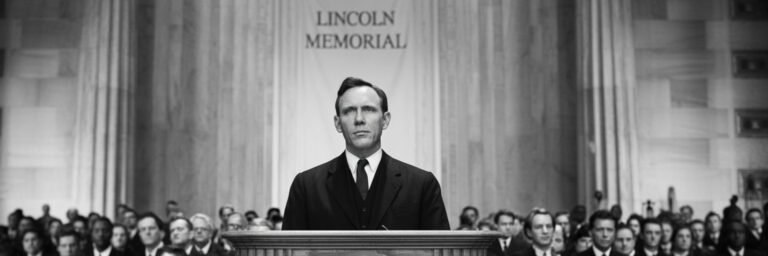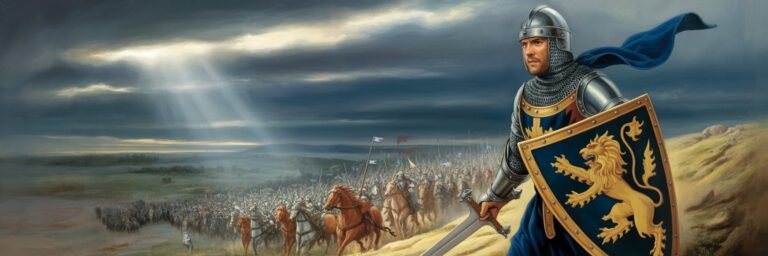INTRODUCTION
Throughout the annals of history, gargantuan personalities have appeared on the global stage, anchoring the progress of their eras and influencing the course of subsequent ages. These figureheads, philosophers, and innovators wielded the scepter of leadership with an unparalleled mastery that not only defined their particular civilizations, but also imparted lasting impacts on global culture, thought, and governance. Winston Churchill, Mahatma Gandhi, Queen Elizabeth I, and Martin Luther King, Jr. more than just etched their names in the pages of history; they shaped their epochs and the future with an approach to leadership that continues to captivate historians, political scientists, and writers.
HISTORICAL BACKGROUND
An exemplification of this transformative leadership began with Queen Elizabeth of England (1533-1603), an iconic figure whose reign, known as the “Elizabethan Era,” represented a golden age in English history. Instituting a Protestant legacy, Elizabeth successfully stabilized the kingdom through deft political maneuvering and encouraging a flourishing of art, literature, and exploration, including the efforts of Sir Francis Drake and William Shakespeare.
In another corner of the globe, Mahatma Gandhi (1869-1948) ignited India’s struggle for independence with his principles of satyagraha (truth-force) and ahimsa (nonviolence). His use of civil disobedience as a tool to oppose what he viewed as oppressive foreign rule revolutionized the history of India and pioneered a path for liberation movements worldwide.
During World War II, Winston Churchill (1874-1965), emerged from the shadows of political obscurity to lead Britain in its darkest, yet finest hour. Churchill’s unflagging commitment to democracy, his extraordinary oratory skill, and his dogged resistance to Nazi Germany have cemented him as a towering figure of the 20th century.
In the Civil Rights Movement, the forthright advocacy and self-sacrifice of Martin Luther King, Jr. (1929-1968) played a critical role in the emancipation of African Americans from socio-political oppression.
THEORIES AND INTERPRETATIONS
Academic discourse regarding these figures is awash with various theories and interpretations. For example, Queen Elizabeth I is regularly lauded for her political astuteness, her maneuvering of the male-dominated court, and her patronage of the arts and exploration.
Conversely, revisionist views of Churchill have highlighted his Imperialistic policies and racially insensitive comments, leading some to label him as a ‘White Supremacist.’ Traditional theorists focus on his war leadership, Iron Curtain speech and contribution to the establishment of the welfare state while dismissing his failures in Gallipoli during WWI and an initial lack of political foresight regarding Hitler’s intentions.
Gandhi’s approach to peaceful resistance has been both praised for its revolutionary implications, and criticized for its inability to bring about immediate and tangible changes. Populist theories also suggest that Gandhi’s philosophies were too idealistic and untenable in a world marked by violence.
In regards to King, various analyses focus on his nonviolent philosophy, drawing parallels with Gandhi. Other interpretations elevate his ‘I Have a Dream’ speech, underlining its significance in shaping both the discourse and action of the civil rights movement.
MYSTERIES AND CONTROVERSIES
Despite the innumerable texts documenting these leaders’ lives and work, controversies and mysteries persist. The Virgin Queen’s perceived ‘masculine’ rule and her circumvention of marriage and motherhood has sparked speculation. Some suggest she may have been secretly male, mirroring the mystery shrouding Joan of Arc’s ‘transgressive’ gender identity.
Gandhi’s personal life and extreme asceticism have been sources of controversy, particularly his sexual practices and his perceived preference for Hindu interests during the painful partition of India.
Churchill’s mysteries revolve around his changing stances and the question of his alleged depression, often referred to as his ‘black dog.’ Moreover, critics question whether his tactical decisions led to unnecessary civilian deaths during the World War II bombings.
MLK had his own set of controversies, ranging from allegations of plagiarism in his doctoral thesis to rumored extramarital affairs and doubts about his commitment to nonviolence.
SYMBOLISM AND CULTURAL SIGNIFICANCE
Each of these leaders embodies cultural symbols and bear immense significance. Queen Elizabeth I represents a powerful female monarch navigating a man’s world, embodying female autonomy and power. Mahatma Gandhi has become an international symbol of peace and nonviolent resistance. Churchill, for many, is the epitome of the assertive and passionate leader, the rock upon which democracy buttressed itself during the cresting tide of fascism. Lastly, King epitomizes the moral fight against racial injustice, symbolizing the ongoing struggle for equality and civil rights.
MODERN INVESTIGATIONS
Modern inquiries into these iconic figures continue to fuel academic curiosity and societal interest. The increasingly inclusive and multicultural perspective of historiography today has led to more nuanced readings of these leaders, including probing the intersectionality of Queen Elizabeth’s gender and power, the effectiveness and universality of Gandhi’s peaceful resistance in an increasingly violent world, the relevance of Churchill’s leadership style in today’s political climate, and King’s ongoing influence in the struggle for racial and social justice.
LEGACY AND CONCLUSION
These leaders continue to influence contemporary political, academic, and social landscapes. Queen Elizabeth’s reign is a testament to female fortitude in patriarchal arenas, a relevant conversation in today’s feminist discourse. Gandhi’s impact on peaceful protest remains a potent strategy in movements like Black Lives Matter and the Arab Spring. Churchill’s bulldog determination and galvanizing oratory are often cited as leadership benchmarks. King’s dream fuels ongoing debates on racial and social justice.
In conclusion, while the reins of civilization shift through countless hands, some leave an indelible mark. Famous leaders, in their strength and fallibility, their momentous decisions, and personal controversies, shape the sinews of history. How we study, reflect, and learn from their actions influences our direction as we continue to write our own pages in the grand narrative of human history.






